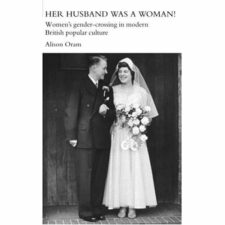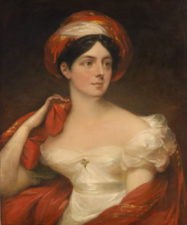I returned from the United States in July 1978. It was wonderful seeing the east coast of Australia and realising I was coming home, but when we landed I felt a gloomy cloud over me. I knew what I was coming back to, and that the freedom would be gone as soon as I walked off the plane. I have never again felt the sense of freedom I had in the United States. Australia hasn’t changed. What is different is that I’m now in a position to confront racism, to do something about discrimination …
Aboriginal people are ‘invisible’ to white Australians. When I walk on the streets there is a glaze white people have in their eyes. Many simply ignore Aboriginal people. They don’t want to acknowledge us because that is to start asking questions about us. Where are these Black people coming from? We thought you were dead. People don’t want to answer these questions, because then they have to deal with the dispossession of the Aboriginal people and the land being taken away from us. They don’t want to, so they choose instead to ignore you until you pull them up and say: ‘Hold on, take notice of me, I am another human being too.’
In the past, oppressive government policies meant at least there was some acknowledgement of us, but as things become better, racisim is removed another step … It is another form of oppression, subtle but real. Even in the law school at Melbourne University I smile at one young woman, and it has taken her three years to recognise me and smile back – not talk, but just that awareness that you are another human being, you are doing law with me, I acknowledge you.
In Australia, all positions of authority are filled by whites. You go to the bank and bank tellers are white. Your school teachers are white. So what does that say to you? Where are your role models saying that you as an Aboriginal person can be in charge? As a law student I am adjudicator for first-year law mooters. It is sweet justice when young privileged middle-class white boys – ‘the Jamies’ – have to stand up and call me ‘Your Honour’. They’re having to start early at law school calling an Aboriginal woman ‘Your Honour’. When they get out I’ll be on the Bench and they’ll still be calling me ‘Your Honour’.
Upon my return to Australia I went to the University of Western Australia, graduating in anthropology. Dorothy Parker is my mentor. She is a lawyer and an anthropologist. She ran courses in my second year which linked law and anthropology and looked at how rules are made. We had to write an essay, and I was interested in prostitution. The law school was right next door to the anthropology building. I had to go there and, not knowing anything about the law, wrote a paper on prostitution laws in Western Australia. I read the legislation, which was interesting and I could read it, or at least I thought I could. So as I went through my anthropology degree I began to think: ‘Maybe that’s any option, studying law.’ Dorothy encouraged me. She said: ”Yes, I hope you do.’ I said: ‘Well, not just now, but later.’ Then I went off, working in the public service and then at Radio 6NR, community radio, for a year as a producer and presenter. Later I returned to the Department of Aboriginal Affairs: a hard time with a high executive position for a woman, getting no support from the men in the Department. I thought: ‘There must be more in life than this.’ Maybe it was time to look at studying law. I sent off applications and chose Melbourne. When I got in I said: ‘That’s it, I’m throwing this job in. Thank you every much but I’m going.’ I have not regretted it …
My family has always been supportive of whatever I do. They are proud I am doing law. Probably some people in the community think: ‘Well, why is she studying whitefella law?’ Sometimes you have to tell them that it is really important because whitefella law governs us and we need to understand it to fight for our rights.
Even when at boarding school in New Norcia I was always interested in law. At boarding school there are so many rules. You have to wear your hat a certain way and have your shoes shined a certain way. So even then I was developing a sociological interest in how society is governed. Not that I ever knew a barrister or solicitor, but it was an interest in rules and laws and what they meant. At that stage I was into fighting out about my rights, so I read introductory publications about what your rights are. This brought an awareness of legal issues.
I would like to be a judge. When I was a lot younger, perhaps with my Catholic influence, I thought that was the worst thing I could ever be. How could you possibly judge another person’s behaviour? From a moral and philosophical point of view that was abhorrent. But going through law school and reading some terrible judgments, especially about women and women’s perceived role in society, I am angry and appalled. I think: ‘Well they don’t have a lot of sense, these judges.’ And not only that, they are for the most part white anglo-saxon, privileged males making judgments far removed from the rest of society. They have no wider perspective of how the world operates for some people, how poor people are caught up in the system and how it works against them. They have no understanding of that whatsoever, no understanding of Aboriginal issues and certainly no understanding of women’s issues. I can bring that experience into the law. But not only that. I have a lot of commonsense. I thought: ‘Yes, I can do just as good a job as them if not better.’ So I’ve begun to think it is important for people like myself to become judges and to create changes in the law …
Marie Andrews (c) 1992
Before going to the Bar in Victoria, Australia to practice as a Barrister fulltime, Marie Andrews qualified as a Solicitor. She then took time off from legal practice to perform in ‘Bran Nue Day’, the Aboriginal musicial which toured Australia and has subsequently been made into a film.
This is an excerpt from ‘For My People’ in As a Woman – Writing Women’s Lives, Artemis Publishing, Melbourne, Australia, 1992 (Jocelynne A. Scutt, ed.).

